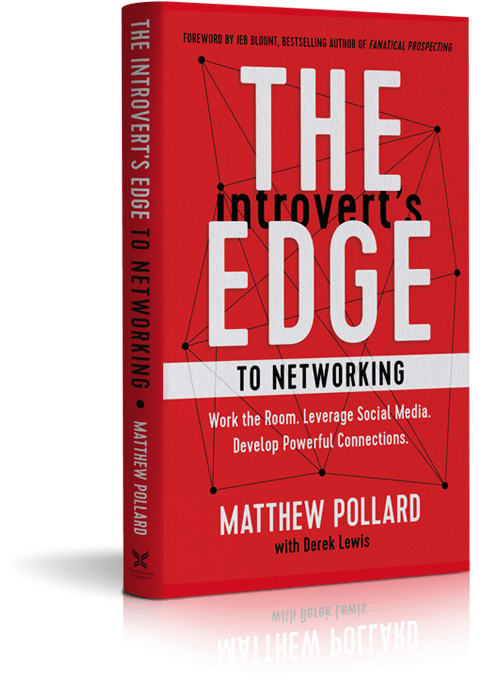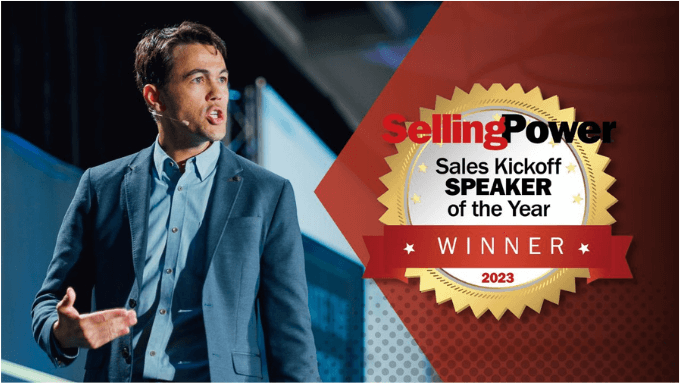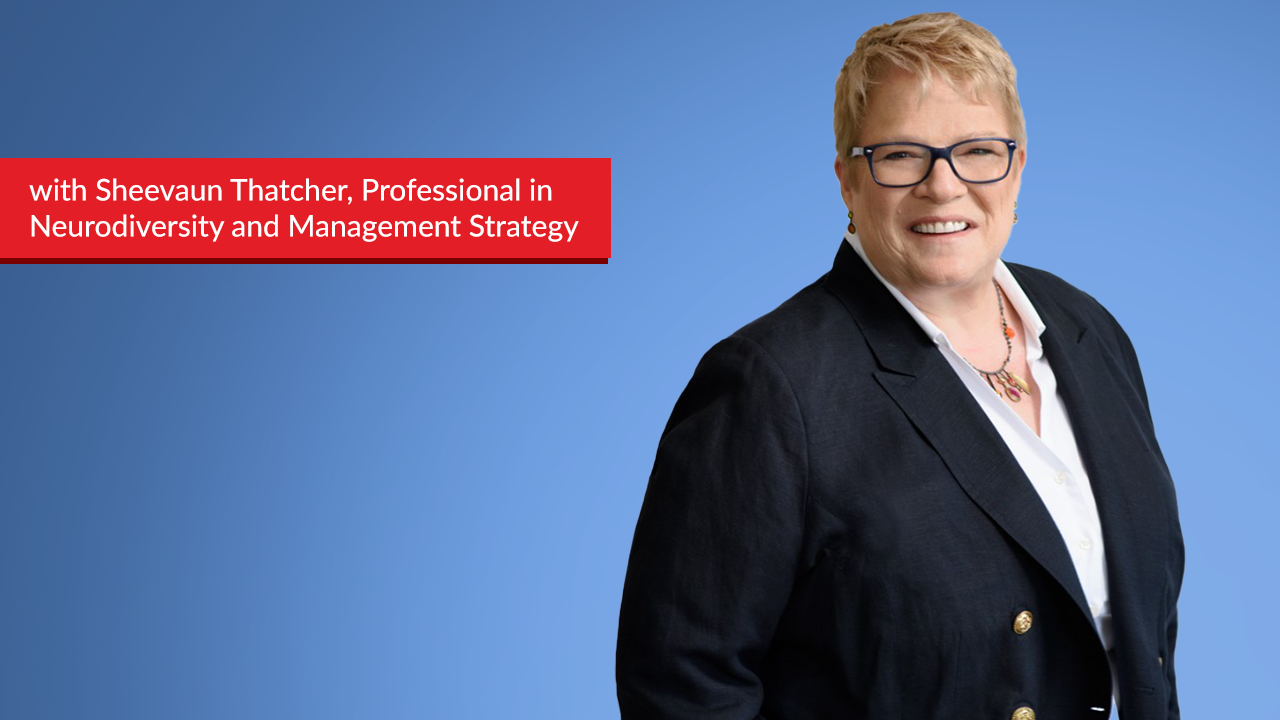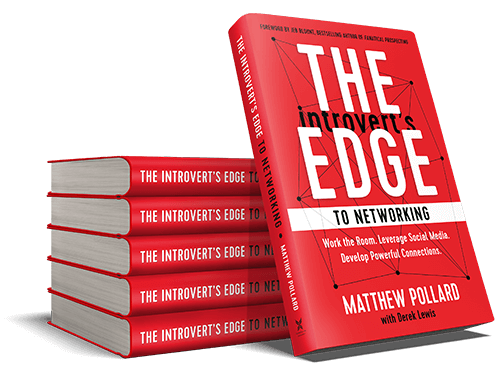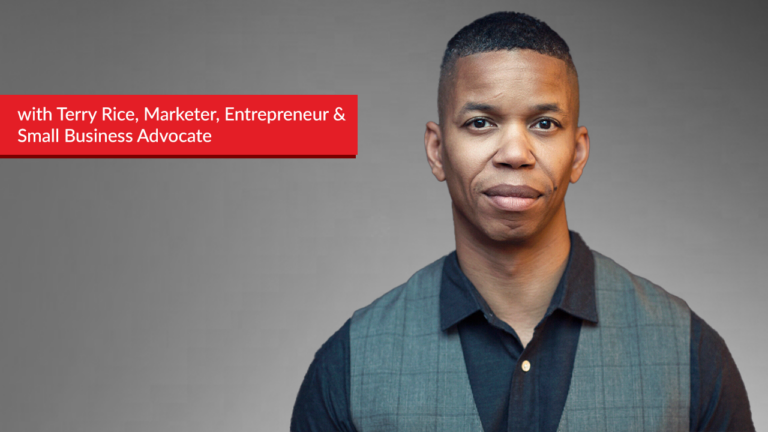Matthew Pollard: Hello, everyone, and welcome back to the Introvert Edge podcast, and I’m ecstatic to welcome my next guest. And I have to say it’s because she’s going to pick a fight with some of the managers of ladies that will be listening to this episode. And it’s a fight that I wanted to pick for a very long time. So I’m very excited about this episode.
Now, for those that don’t know, Siobhan sets up, I want her to I want everyone to know that she is been hugely successful in the world of sales. I mean, over a decade for organizations like Slack, RingCentral and now Salesforce. And so she definitely knows a thing or two about sales. And for those people that aren’t in sales before you run away for this, this is a manager conversation we’re about to have and a conversation about how to manage your introverts and perhaps what some of those introverts are really screaming that you should be providing.
Perhaps if you’re an extroverted leader, or perhaps what we could do better as introverted leaders as well, because we don’t have to copy the extroverts as a matter of fact, we’re about to say it doesn’t work so well. So I’m really excited about getting into this into this interview. Sheevaun, thank you so much for joining me for this.
Sheevaun Thatcher: Oh, my pleasure. My pleasure.
Matthew Pollard: And, you know, we we were having a pre chat before this, and I’m not sure if it was obscenely obvious by my eyes light up when you said, you know what, I understand. I’m going to get into this sales topic. But what I really, really want to talk about is how managers are constantly letting intruders down about, you know what, throw everything else out.
This is what we’re going to dive deep into, because I personally believe and it’s really interesting, like we always talk about bringing diversity into the workplace and we talk about gender, we talk about culture, we talk about religion, we talk about so many things. And I think people are starting to get to the understanding that cognitive diversity is also very important.
But then I feel like all we try to do is mold everybody into what’s comfortable, what’s easy for us, and it kind of blows up the opportunity and the innovation that we can get from free thinking and the best ideas to come out. And, you know, I don’t want to I don’t want to cross this too much because I think your general framework on the way that you explained what managers are doing or not doing, that’s letting down their team members, I feel like what you what you said, I wish I could have got that in a bottle and just launched it now into the into the podcast.
So would you mind sharing, like from your experience in in Leadership of what have you seen that a lot of managers do wrong when it comes to managing their staff?
Sheevaun Thatcher: So so first of all, I just want to give, you know, a little bit of credential that if you look at me on the introvert scale, I’m actually in the mid seventies. I mean, I am an introvert. Anybody that meets me, if they’ve seen me on stage, I don’t believe that for a moment. But it is true, right?
You’ll find me for 20 minutes after I come off stage and then I’m gone. It’s like ticklish. That’s the timing. So when it comes to introverts, what I have discovered and for me especially, is that over the years I’ve learned how to stand up and fight for myself in a room and do all of that. But that is because I spent many years not being given the opportunity to do it either.
I’m put into a room with a bunch of people and a manager says, Hey, I’m going to bring this topic to the table right now. Let’s all discuss it, throw it out there. And then I never get an opportunity to speak because I’m not as loud as or I am not looking for the validation that extroverts thrive on.
I know I’m not getting that I have ideas. The problem with a lot of managers is they don’t realize, especially as you said this, you know, that the diversity of thought and how people show up, they don’t give introverts the time to think it in their head. I think all my things in my head drives my friends and family crazy because they’re like, We just need you to communicate.
I’m like, I will when I’m ready, but I need to. I need to do this. And so when managers just introduce topics out of the blue that are important and then they get frustrated right? They’re like, I feel like I’m always trying to pull information out of my introverts, give the introverts the opportunity to think about it beforehand and come to the table prepared.
Then, yes, it’s up to you to make sure they speak. It’s also up to the introverts to get beyond their comfort zone to go. I, I have something to say. And so it’s that combination. You can see where the exhaustion happens on both sides and it’s can be easily rectified if you just do a little planning at a time.
Matthew Pollard: Yeah, that’s really interesting. I remember I was on a phone call from a lady from Apple, actually, and she was talking about the fact that the only time she really had to get recognized was they would do these big open trainings where they’d invite some special guests to deliver some topic. And she always felt like she was never able to contribute cause the extroverts would speak loud.
But also she didn’t have enough time to prepare. And I said, Well, do you know who the speaker is in advance? Why didn’t you look up what they would talk about or what they were interested in? They like you would have been able to get some hints about what it’s about. And what I’ve noticed with your dialog just from the the small time that we’ve really had to even connect today is that you seem more methodical, more pre-planned, more regimented in the way you approach things.
And I’m wondering and I’d love to actually kind of peel back that onion about kind of your trajectory into the world as as an introvert into I mean, especially the sales world, which is kind of very extrovert centric. And even though a lot of the best of the best salespeople happen to be introverted tends to have that kind of, you know, used car sales feel, at least from the outside.
And I’m wondering why you think differently than a lot of other introverts that feel like they weren’t given that opportunity, that they couldn’t enter and into the world of sales or just really even enter into one single conversation. You seem to have taken a back step and said, I need to approach this differently. I need to talk to managers and tell them to approach me differently.
And most introverts don’t do that. So I’m really interested in kind of that humble up bringing about, you know, How did you initially realize your introvert? How did you cope with that? What did you have to do differently to get yourself to where you are today? Because I feel there’s a lot that people can learn from that story.
Sheevaun Thatcher: So there’s a couple of things. When I was in high school, I stuttered. I stuttered so badly that it was very difficult for me to speak up, which didn’t help on the introvert side. And in fact it exacerbated it to some extent. So when I started getting into business, I realized I needed to be able to change my speech pattern.
I needed to be able to chunk things up. And if you listen to me speak, you’ll hear that it’s in these chunks of bits because that’s what I can control. The other thing that happened is I realized that whenever I went into business meetings and thought, I need to be prepared, I need to just that word alone was anxiety ridden is the need right?
Because need itself implies an outside external force on you. When I change that language and said I want to be prepared, I want to go into this knowing it, then I knew at that point, okay, how can I want to be prepared with this? What do I need to do? What do I want to do? I want to research them on the Internet.
I want to and even, you know, back when the earth was cooling and we were all on Abacus, you could still do research, right? You could still figure things out. So I’ve always been a researcher, and in cases I may research right up until the point I’m doing whatever it is I’m supposed to be doing. I could be walking into a room reading a paper doesn’t read but something because I know my opportunity to speak is going to be small.
And when I do get the opportunity, I have to make sure that it’s going to have impact. Right? Whereas perhaps extroverts and I’m not I’m not denigrating experts in any way, but extroverts can have a tendency to be somewhat verbose. If you’re an introvert and you only get a finite bit of time to say something, make sure it’s impactful.
And so one of the things I’ve taught a lot of my clients is think about your conversation like this, like a triangle. The higher up you get to the top of that hierarchy, the less words you need to be using, which is why you have to be prepared. So if you’re down here and it’s just everybody sitting around in the lunchroom and chatting away, knock yourself out.
But as you’re getting higher and higher and higher up that chain, you need to use much more specific, much more aligned, much more business acumen, types of words. And so it’s that research and being prepared that when you do get your moment, either because your manager has been trained to say, make sure you go all the way around the room, or you take the accountability for speaking up and say, I want to say something.
Make sure that what you’re saying is absolutely what is going to have impact in this conversation.
Matthew Pollard: Yeah, I think that’s insightful. One of the things is I’m reminded of a conversation I just had earlier today and having a dialog with a huge company and they’re spending millions on redoing all of their resources to help salespeople have all the information they needed. And I was the one that listened to everybody talk. And I just then took a step back.
And I think introverts great at being reflective thinkers. And I knew we were going into this. I knew what the document. And I was like, Why are we doing all this? This seems like a lot of work. And for me, I felt that my lack of understanding of why we were doing it the way we were doing it was actually the best question to ask.
And I think a lot of interviews are not getting it and they fall into this negative cycle where I went, Look, I’m really trying. I’m confused by this because you’ve just said you’re doing this to help the sellers, but everything that you’re doing feels like providing information to sellers. They feel obligated to read but won’t read. And then will feel bad about themselves.
But it’s actually not a tool that they can use in the world because it’s not about the stuff you providing isn’t helping them sell better, it’s helping them understand a lot more of the information that they already have. Too much information is overwhelming. Like, let’s look at what they need. Like where’s the customer now? What are they struggling with?
What’s the smallest thing we can say about the jargon? And then what’s the outcome for the person? Because that’s what a salesperson needs. What you’re providing shows a lack of understanding of what the actual rep wants. Now that was about a thousand times less than what everybody else in the room said. And they went, You’re 100% right now.
Paradigms wrong.
Sheevaun Thatcher: So I talk about, you know, we we use the expression a lot of times that rather than yeah we want to teach them how to fish. Yeah that in itself though has some inherent issues, right. Is that we want to teach them how to fish. So we give them a fishing rod, we go there, we say, get back, get back at that, get that, they fill up their bucket.
They got all these different fish that they’re not hungry for right now. So they put the bucket aside and then when they come to get it in a couple of days or a couple of weeks or a couple of months, it’s all rotten. There’s there’s nothing in there that’s useful. And so this is where I think the days of certifications, for example, having all these dacs and all this content, you have to memorize it, you have to be certified on it and you have to.
Those days are quickly coming to an end because my role as an enablement leader now is to become an expert in generative AI prompting. And then my role in my team’s role is going to be working with these folks that are looking for that information at the time they need it, just in time, activity based, whatever you want to call it, that they’re looking for right now from an introverts perspective, Oh Lord, it’s heaven.
I don’t have to stand up in front of somebody and do a you know, here’s my corporate deck and I have to go through it. But. BLAIR No, I can sit down with some very simple prompting, but generative. I find all the information I need to have a real conversation with somebody. And that is what introverts do very, very well.
Is that conversationally, as opposed to that pitching like extroverts do, pitching very, very well. Introverts, introverts do conversation very, very well. And so this new world is switching over and the introverts that, you know, the managers have you managers that are watching this, you need to start paying attention to your introverts because they’ve got the skills on how to find that stuff.
You can tap it and you got to do it.
Matthew Pollard: Yeah, absolutely. And the skill sets we’re really talking about here, I mean, reflective thinking, empathy, to ask insightful questions like with prompts, you know, what is it? What’s the framing with, with prompt engineering, It’s the prompt engineers ability to be able to ask the right question is the reason why you get rubbish output or great output. And what I find, especially with AI, is they’re putting so much rubbish in and it is rubbish in rubbish out because the prompts bad and the content is bad.
But I think that one of the things that introverts do well is they’re willing, especially if they’ve been given the notes, like you said, what the agenda is going to be about. Otherwise they’re going to say it’s a bad idea three days later when it’s too late. But they have the ability to take a back step and say, are we asking the right questions?
Is this the right direction to go? Because introverts tend not to be balls in a china shop. They they want to make sure that they’re precise rather than just loud and, you know, and and throw a lot of energy behind something.
Sheevaun Thatcher: And we can answer a lot of questions in the shower. That’s what.
Matthew Pollard: We do. We do it. I have to say, I.
Sheevaun Thatcher: Wish I said that. Yeah.
Matthew Pollard: Well, you said before our interview and that’s what I wanted to come back to. You said before our interview that you can be you can get heated if some if you’re trying if you feel like somebody is giving the wrong information. I didn’t usually everything that great that comes out of your mouth came from a conversation you had with yourself in the shower earlier.
And so what I’m interested in for the ladies that are like, I want those shallow conversations in my meeting, but I’m not great at structuring a meeting. I don’t know what we’re going to come up with. I’m more dynamic. What advice would you give to those people to help get those questions at the time they need them or the answers at the time they have them.
Sheevaun Thatcher: So it depends on the the the depth that they’re looking for. If they’re looking for just some idea stuff or you’re just, you know, brainstorming and things, then give them a couple of days ahead of time. If you’re looking for some really deep conversation, right, you’re doing business planning, you’re doing all of that, set something up a week or two weeks beforehand to say, this is what we’re going to cover.
Here are my expectations of you. What I want you to come to the table with. Here are some resources you may want to use and you can come to the table and you will have just as much opportunity as everybody else to speak So ahead of time, tell the introverts and the extroverts it’ll be equal time right? There will be equal time.
Now, there are still going to be people that show up with all the knowledge that have their you know, they have their booklet and everything is there. It is up to the manager to determine at what point those things get asked. It’s up to the manager to get the extroverts to stop talking for a minute. I want to hear from this person.
Don’t interrupt. Right. So there is some meeting control that needs to happen, some meeting management, if you will. But if you give people enough time to prepare it and then you let them know, this is my expectation of you when I when I want you to speak, here’s how long I want you to speak for. Right. You get 5 minutes, 10 minutes, whatever it is, and you make sure that everybody it’s even Stephen across.
Then when the meeting is over, you can say, how do people think about this meeting? I’m not expecting you to answer right now. Take the next couple of days and I would love to get your feedback. Give it to me however you want it, either directly or in an email or a slack or however you want to get it to me.
I would love to get your feedback, but again, don’t demand things right on the spot because an introvert is not willing. I’m not going to say not able, not willing to give it to you then until they’ve had an opportunity to process it all.
Matthew Pollard: I’m wondering if there’s a lot of cross sections between investment strategy and management strategy in the way you frame this, because if you’re looking for an instant quick win that’s like there or you get rich quick schemes and they’re usually a lot more work and don’t get anywhere near as far compared to your slow but you’re stable kind of investment strategies that give you those high yields.
And you know, as as I was thinking about what you’re saying, you’re like anyone that wants that quick win, anyone that doesn’t. And you know, in the management term, I guess you would call a fast action culture, somebody that wants that fast action today, like three days isn’t the end of the world to to get the ideas and then fully form them is going to miss out on sometimes the best ideas just because that feeling of now we need to do something.
This is something let’s do this win wins out. And I’m I’m actually wondering as we kind of go through this, because I know when I’m thinking about the average meeting, it’s like we have this question by the end of this meeting. The goal is to have solved it and there’s no pre-planning beforehand. So it’s the loudest idea or the most confident idea because everybody’s unsure.
I don’t see this being a negative for the extrovert. I see the negative for the extrovert that doesn’t plan. But just like Brian Tracy talks about, the top 10% of all sales performance, have a plan presentation. I cannot imagine anybody that doesn’t do planning before a meeting not getting to a better outcome. It’s kind of that, though. What is it Winston Churchill saying?
Those that plan fail to plan, plan to fail. It’s the same thing in these meetings where we’re going to get the best lesser idea by not doing the agenda. So in your mind, is it lazy management to not do that plan? Is that here’s what the agenda is, this is what my expectations are, and then the follow up.
Or do you feel like it’s just something that they’re not taught, they don’t know how to go about it.
Sheevaun Thatcher: It’s not lazy management, it is not lazy management. You know, when I when I in my enablement world, the biggest failures that we have in organizations is around that accountability of the management level. And it’s not because they won’t do it, it’s because they don’t know how. They’ve never been coached how to do that. Think about most sales managers were at some point a top seller and they’ve been put into management.
And the reason they’re a top seller is because they do a lot of things, unconscious competence. And so when you put them into management and say, okay, make these people do the same thing you do, they don’t know how to tell them what to do. They’re like, Well, just watch what I do. And people are like, I, I don’t, what are you doing?
Right? And so there’s there’s a disconnect there. Some people are great managers, right? They’re great sellers. They become great managers because they can speak about what it is. But that is that is a breakdown. And I don’t think it’s laziness. I think it’s just a lack of of of coaching. I think it’s a lack of tools, personal tools.
I think it’s a lack of IQ to understand that the person, the people in this room are not simply a means to an end. The people in this room are actually humans, and each each human is an individual and you have to treat them individually. And yeah, it can be exhausting. That’s what management is about, right? So you want to be a manager.
There are things you have to be able to do.
Matthew Pollard: I think that’s a really great bit of information for people because I feel like a lot of people feel guilty, especially a lot of extroverts that feel guilty that they’re letting their introverts down. They just they don’t know how to do it. And funny, I remember that I became the best salesperson in my company and they promoted me and I have no idea and no worries.
It’s but again, it’s against the wall. Just throw it against the wall, See what sticks. Well, nothing. Steals everything. Everyone quit on me, right? And especially in commercially sales, they’re not going to put up with a bad manager these days, though. They give you great salaries. They give great salaries to the team, and they say, throw that up against the wall, See what’s horrific.
But it happens far beyond sales. So if you’re a manager listening to this, whether you’re an introvert that doesn’t know how to control introverts and extrovert dynamic or or an an extrovert that’s listening to this, because we do get quite a lot trying to figure out the introverted puzzle. Robert I want to make it everybody’s responsibility. Maybe not their fault, but everyone’s responsible in moving forward to fixing this problem.
And I don’t want to say that those resources are out there in one spot, but I’m guessing that over time you’ve worked out, Do I go to jail for these things? Do I have to learn it myself? Are there there books that I should be reading? Is it just reflective thinking prior to every meeting? How can I go about being a better leader in the ways that it matters when it comes to your diverge? Neurodivergent teams?
Sheevaun Thatcher: I think that there is likely a ton of information out there that you can find and it is up to you to find it. We have you go to Amazon, look for the introverts dilemma. I don’t look for how do I manage introverts, How do I manage diverse, you know, neurological situations and folks that are there. There is a lot of help out there.
There are companies like Coach Ability or there is, you know, other companies that like Salesforce is hired, one that you can just go to and say, This is a situation I have. Find me a coach that can help me do that. So the resources are there. I think sitting back and going, I just don’t know how to do it is not an excuse.
It’s not an excuse. It is a recognition which is good. You become a conscious and competent. Now we get get you to a conscious, competent so that you are doing the things you know will work and try and attempted to get people to do that. And eventually you become an unconscious incompetent. And that works for whether you’re an extrovert, an introvert.
It doesn’t matter, right? But it’s up to us to do it. It’s up to us to make the choice to be better, to be better as extroverts, to let other people speak and not try to dominate. Yes, I get it. Extroverts get a lot of their energy from the folks around them. But you’re also sucking the life out of every introvert in the room.
But it’s also up to the introverts to say, hold up, I have something to say. It is also our responsibility as introverts to stand up and say something. And it is difficult. But let me tell you something. If you don’t say anything, then no one’s going to hear you. And if you’ve got really good ideas, they’re never going to get implemented and you’re going to get frustrated and you’re going to go to the next company, the same thing’s going to happen and you’re going to go to the next company and the same thing’s going to happen.
And if you’ve got a manager that doesn’t understand how to manage you, then use your one on one with that manager and teach them how best to work with someone like you. How do you want to be coached? How do you want to be managed? It’s up to you to do both sides of this. There’s responsibility on both.
Matthew Pollard: You know, I think that’s really great advice because I feel like a lot of people just want to blame the other person. And it’s whether they’re putting themselves it’s not in my control or or whether it’s just it’s easier to do that, right, because then I don’t have to do anything either way. There’s no win. And one thing I really want to I really want to put a spotlight on is.
Sheevaun Thatcher: That I have this at my desk.
Matthew Pollard: Oh, I love that image.
Sheevaun Thatcher: I want to do. I have.
Matthew Pollard: To I have to introduce we just.
Sheevaun Thatcher: Aired do it scared. That is the introverts dilemma. And I have it where I can see it every single day. And it’s like, then just do it scary, but do it right.
Matthew Pollard: You know? We just had a guest on, funnily enough, from the American Heart Association, and they’ve actually created an introvert club inside their organization. It’s a staff support organization inside that they did their business and she had that exact same image that she pulled up. And I have to tell you that a lot of introverts, it is getting out of your comfort zone.
But the truth is that what is that? That that other image? That’s amazing. That’s where the magic happens right outside your comfort zone. And the truth is that I think and I really want to put a spotlight on this before we finish the most profound thing. I heard you say that I feel like most people would miss is that what you said is go and speak to your manager about how to manage them.
Met manager And what I got from that was don’t tell them they don’t manage you well. Tell them how to manage you and tell you exactly. And to know that you have to do your homework, you have to do your research. If you know, if you just say it’s your responsibility, you’re not doing well enough. That may continue.
But I don’t know anybody that would hear If you manage me this way, you’ll get the best results. That would ignore that.
Sheevaun Thatcher: We actually there’s a gentleman I worked with for a number of years. His name is James Simpson, and what he introduced to me was a single sheet that says how I want to be coached. And it’s a number of questions. And even when I came to my most recent posting, shall we say, I handed it out to my direct reports and said, Tell me how you want to be coach.
What’s the best way to deal with you? How do I, you know, is it do I put you on the spot? Do you love tension? Do not hold tension. Right do. And so I had them fill this in, right? Old school filling in a form. But now I had the information that I needed as a manager to make sure that being brand new, I wasn’t going to step all over myself making mistakes with the folks on my team.
It also gave them the opportunity to really dig into their IQ, to think about how do they really want to be managed.
Matthew Pollard: Yeah, I think that’s powerful and I feel like a lot of people listening to this, what they’re really hearing, or at least I hope they’re hearing, is that you do a lot of planning, preparation. You’re thoughtful about the actions you take, which allows those actions to be more meaningful. And the thing that I really took from from this, which I feel like a lot of leaders don’t do this.
You didn’t come in and say, How can I best manage? You said, How can I best coach you? Coaches tend to work for the person rather than have the people work for them. And I feel like that mindset, just that shift is profound. So I hope people listen to this more than there were so many messages inside the messages of this interview.
So I hope people take a second to re listen to this at least once. And if you’ve got a manager that is that big extrovert that doesn’t listen, get them to listen to this episode and say, See, I told you, but it’s my fault. So let me go figure out how to manage me. And I will then, you know, come back to you with some strategies, incentives.
As a matter of fact, let’s set a debt deadline, a date and a follow up meeting so that it’s my responsibility to to come to you. I know we’re getting to the end of this interview, and I know you’ve got to go. So I I’m going to ask like, I know we’re about to we’re going to interview as well for the introverted seller Summit, which is for those people that haven’t registered yet.
By the way, it’s the 9th of October. So please make sure that you go and register for that event. We’re going to be talking specifically. We’re going to be definitely touching on generative AI and how to leverage that in sales. But also, you know what it’s like. There’s a really cool story about how Siobhan went from the trade show floor to to being the sales engineer and how that worked really well.
So I can’t wait to dig into that. But those people that are that are hearing about you for the first time and may have a question that we didn’t answer, is there a way they can reach out to you and ask you questions or is there a direct resource that you would suggest on this topic that they would get huge value from?
Sheevaun Thatcher: Yeah, I, I have to say that over my career and I’ve been in this a number of decades, I’ve had some wonderful mentors in my time. Right now I spend most of my time giving back and so anybody that wants to work on their career work out, I am happy to talk to. And so the easiest way to get a hold of me is through LinkedIn, right?
Just connect with me on LinkedIn. It’s going to ask you for my email. It’s a really hard one. It is my first name at gmail.com. Again, when you’ve been around since the Earth was cooling, you get to take that to be it. So it’s just Shavon and gmail.com and you know, I’m happy to I’m happy to talk to people about this kind of stuff.
Right. I may push you off to different areas. Go look at this resource cloud. Look at that. But you know, as an introvert, we can still show up really strong and really powerful in this world. The only difference is where we get our energy. Our replenishment from that really is it is where we get our energy from.
Matthew Pollard: As we get into the end of this interview. One question I didn’t ask you that. I always ask all of my guests before they before they leave is what do you consider your introverts edge to be?
Sheevaun Thatcher: My your edge is that I can manage my energy well. I know what I what my limits are because I’ve tried to push them. And there are times if I push past my limits, then you’re I’m going to disappear. People like where do you go? I go to the ladies room and I sit in the stall for 20 minutes.
All right. If that’s all I can do, that’s what I’m going to do. So I know what my limits are. I know how I get replenished. Doesn’t stop me from getting on stage and being, you know, doing my presentations and being dynamic doesn’t stop me from getting on podcasts and doing this. But I do know that, you know, at the end of this, when this is over, I’m going to go sit in my backyard for a little bit and go, Who?
Okay, get a back again, right? I mean, so that’s it. As an introvert and having done this for so many years and knowing that about myself, I know where the boundaries are and I respect them.
Matthew Pollard: That’s perfect. Well, thank you for sharing that. And for those people that are listening to the introverts Edge for the first time, thank you so much for tuning in. I hope you check out all of the other great episodes that we have some phenomenal people. Please make sure that you register for the introverted seller Summit, because I know Siobhan’s content’s going to be amazing for that.
But there’s so many other people in there as well that I think you’ll get a ton of value out of. And also make sure that you start seeing your introversion as an edge because it truly is it. And you just need to learn how to leverage it. But thank you for your time today and we’ll see you the next one.
Sheevaun Thatcher: People can learn from you.







